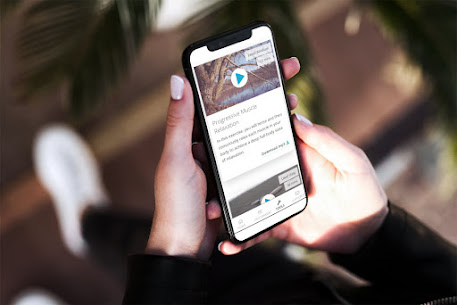"Time and activity in Nature is good for us."
by Owen Griffkin, Powys Patients' Council Facilitator
One of the requests that comes up regularly when we hold Patients’ Council sessions on the Felindre Acute Mental Health ward in south Powys is gardening activities. Unfortunately until recently this has been difficult to organise due to health and safety reasons but we have been speaking to the occupational therapist on the ward, Millie Griffiths, about ways in which this could be provided.I am a big believer in the power of gardening to improve mental and physical health and advocate for people to use ‘The Five Ways to Wellbeing’ to do this. In my view it helps you achieve all the goals in the Five Ways, (be active, take notice, keep learning, connect with others and give). It’s a skill that people can take with them when they leave the ward, and maybe join one of the many local groups to help their recovery. At the bottom of this article I have listed some local groups you can get involved with.
This is why we have been so keen to see activities on the ward, and we are delighted that Millie has been working hard to get regular gardening sessions on the ward recently. We asked Millie to give a quick overview of what they have been doing.
MIllie Griffiths — Mental Health Occupational Therapist
In June 2020 there was an enclosed garden situated between Felindre Ward and Defynnog Ward which was unused.
MIllie Griffiths — Mental Health Occupational Therapist
In June 2020 there was an enclosed garden situated between Felindre Ward and Defynnog Ward which was unused.
We had no gardening group on the ward and research published in the Mental Health Journal has shown gardening as being able to “reduce stress and improve mood with a reduction in symptoms of depression and anxiety,” (Thrive - a charity that has been using social therapeutic horticulture and gardening to change people’s lives since 1979). You can read more about why gardening is good for your mental wellbeing on the Thrive website.
Using Sir Captain Tom Moore Covid funds we were able to purchase planters and a plastic greenhouse which has enabled us to facilitate a gardening group for patients on Felindre Ward. We have been able to grow vegetables which we have then used in cooking groups, as well as flowers. This has enabled us to promote healthy living and spending time outside, as well as providing patients with a better outlook when they look out of their window.
On the ward we have weekly patient meetings, as well as fortnightly Patients' Council meetings, where it has been frequently suggested by patients that we have a gardening group. Due to the expression of interest, unused space, and research into gardening and mental health, we set up the group. I am not a gardener, nor do I know much, however through the use of Google, books and other staff/patients’ knowledge we have been able to set up the group which we hope to continue to develop to create a space patients can enjoy.
Community gardens across Powys
If you would like to get involved in a gardening project near you here are some you can try out:
Brecon & District Mind's Green Minds Project in Brecon Cathedral and other areas in South Powys.
Using Sir Captain Tom Moore Covid funds we were able to purchase planters and a plastic greenhouse which has enabled us to facilitate a gardening group for patients on Felindre Ward. We have been able to grow vegetables which we have then used in cooking groups, as well as flowers. This has enabled us to promote healthy living and spending time outside, as well as providing patients with a better outlook when they look out of their window.
 |
| From garden to kitchen! |
If you would like to get involved in a gardening project near you here are some you can try out:
Brecon & District Mind's Green Minds Project in Brecon Cathedral and other areas in South Powys.
Read more about this project on our separate blogpost - Green Minds Ecotherapy Project - South Powys
Llandrindod Community Garden/Transition Project - Runs a community orchard/pomarium and food garden as well as holding regular meetings to improve sustainability in Llandrindod Wells.
Newtown - Cultivate: Cultivate is a cooperative, run by volunteers and employees who are dedicated to supporting a resilient local food economy.
Newtown - Ponthafren: Regular gardening activities - details on their new activities calendar.
Ystradgynlais - The volunteers will be returning to the community garden project that was on the hospital grounds very soon. Watch this space, or keep an eye on local bulletins, for more info.
Machynlleth - Gerddi Bro Ddyfi Gardens provides and promotes a therapeutic community wildlife garden for all people in the Bro Ddyfi area, and especially those at risk of social exclusion. They will be restarting activities after a Covid break soon.
Newtown - Cultivate: Cultivate is a cooperative, run by volunteers and employees who are dedicated to supporting a resilient local food economy.
Newtown - Ponthafren: Regular gardening activities - details on their new activities calendar.
Ystradgynlais - The volunteers will be returning to the community garden project that was on the hospital grounds very soon. Watch this space, or keep an eye on local bulletins, for more info.
Machynlleth - Gerddi Bro Ddyfi Gardens provides and promotes a therapeutic community wildlife garden for all people in the Bro Ddyfi area, and especially those at risk of social exclusion. They will be restarting activities after a Covid break soon.
We would love to hear what you think about the benefits of therapeutic gardening and if you have joined in any of the activities at these community gardens. Comment below and also suggest other gardens you know where people could volunteer.

































